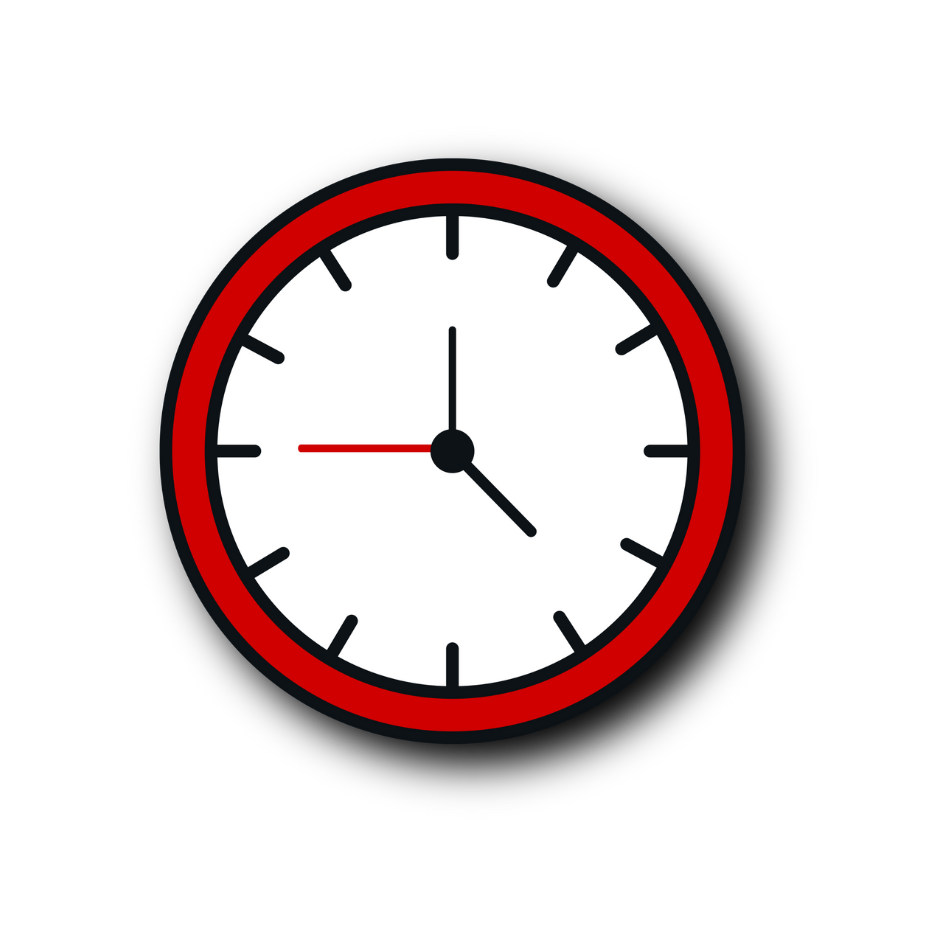PSYC 181: Introduction to Psychology
University of Nebraska-Lincoln
Teaching Assistant
Emma Brase
 Office Hours: Wed & Fri 1PM-2PM
Office Hours: Wed & Fri 1PM-2PM
 Zoom
Zoom
 ebrase4@huskers.unl.edu
ebrase4@huskers.unl.edu
Always put PSYC 181 in the subject line (or email through Canvas) if you want a prompt response. Every effort will be made to make email replies within 24 hours of receipt (Monday through Friday).
A short note about basic email etiquette to best represent yourself when corresponding with the instructors – It is expected that each email will include a subject alerting the instructor to the content of the email, a simple greeting, at least one sentence, and a closing that includes the student’s full name. For more information about email etiquette please visit here or see the resources posted to Canvas.
Course Description
Psychology is the scientific study of behavior and mental processes. The content focuses on the exploration of major psychological theories and concepts, methods, and research findings in psychology. Topics include the biological bases of behavior, perception, cognition and consciousness, learning, memory, emotion, motivation, development, personality, social psychology, psychological disorders and therapeutic approaches, and applied psychology.
Exploration of major theories, concepts, methods, and research findings in psychology. Research methods, including the scientific approach, research design, the use of statistics, and ethics. Major sub-disciplines in psychology including but not limited to: the biological bases of brain-behavior relationships, perception, cognition, learning, memory, emotion, motivation, development, personality, social psychology, psychological disorders, and therapeutic approaches, and applied psychology.
Learning objectives
Gain general knowledge of psychological facts, influential psychologists and their contributions, and scientific methodology.
Apply course material to make evidence-based arguments about the brain, mind, and behavior.
Develop critical thinking skills by finding ways to ask and answer questions like a psychologist.
Communicate about psychological science.
Course Materials
All of the materials for this class are available online and free.
Textbook (required)
Your textbook for this class is available online and is free! Psychology from OpenStax @spielman_etal20
I have edited and arranged the textbook for our use in this course. The version that you can use for annotating is found here.
You can view it on an internet browser or download it as a pdf.
You have several other options to obtain this book if you want. They include:
You can use whichever formats you want. Web view is recommended – the responsive design works seamlessly on any device. But keep in mind that I have removed and edited several chapters for use in this course. I recommend using the version I have provided.
Other materials
There will also be additional articles and videos to read and watch. When this happens, links to these other resources will be included in the lecture slides or on the unit page.
You will also need to sign up for two outside services to complete assignments in this course. The details are included below. You should do this on the first day of class.
You will need to register for an account with the American Psychological Association (APA) Online Laboratory to complete several activities during this class. How to access:
- Go to http://opl.apa.org
- Create an account or login as a student
- Click Experiments tab and select Monty Hall
- Enter the Class ID:
524024
- To confirm you did this correctly, please complete the Monty Hall experiment.
We will use Hypothesis to share our thoughts and digitally annotate the textbook. More information about how and why we will use this tool is found below. How to access:
- Go here to sign up https://web.hypothes.is/
- You can use any email.
- You will use this to annotate your textbook.
- On Canvas, find your “Tribe” page and locate the link to join your Tribe group. You will make all annotations in your tribe-group (not publicly).
- Locate your ‘Tribe’ Hypothesis group-link, join the group, and post 1) your name, 2) your Tribe name, and 3) your preferred pizza topping(s) in an annotation anywhere on this page of the textbook.
Please do not hesitate to reach out if you have problems registering or if you do not feel comfortable doing so and I will help you find a solution.
Course Structure
This course is asynchronous and online, so we will not have a scheduled class time to meet each day. This means that you are generally free to work at your own pace within the constraints of the course schedule. But you should plan to spend several (3+) hours a day working on course materials, activities and assignments.
Keep in mind that because this is an accelerated summer course, we only have five weeks together to learn all the material. This means that falling even a day or two behind can make things difficult. If, for some reason this happens to you, do not panic. I am here to support you and can help you to get back on track. But at the end of the day you are responsible for your own learning and for completing the assignments in this course.
There are two times during the semester when you will need to attend class on Zoom at a specific time to take the group exam.
In general, I advise you to keep up with the daily schedule and turn things in as you go but all the assignments for each unit are due by 11:59PM on Sundays.
If a unit starts on a Friday and continues the following Monday, they are due that second Sunday. For the last unit, everything is due by 11:59PM on August 15.
Course Units
The course is organized into 12 Units. Each unit covers a broad topic in psychology and includes 5 basic components.
graph LR
A[<i class="fas fa-book"></i> Reading] --> B[<i class="fas fa-highlighter"></i> Annotate]
B --> A
B --> D[<i class="fas fa-list-check"></i> Learning Check]
A --> C[<i class="fas fa-chalkboard-user"></i> Lecture]
C --> E[<i class="fas fa-person-circle-exclamation"></i> Activity]
This is the basic structure for each unit.
For each unit you will need to read the accompanying chapter of the course textbook. You will be required to make at least three (occasionally more) annotations in the digital textbook. The exact prompt and requirements will depend on the unit but will be clearly listed on canvas and the lecture pages.
Your annotations will be visible to the other members of your ‘Tribe’. Throughout the semester you will need to work with your Tribe to complete certain activities and to take group exams. You should learn to rely on your tribe as a community that can help support you in this course.
For each unit you will need to answer a few questions to test your comprehension of the reading. These quizzes are designed to assess your understanding of the material and help me understand which areas of the content students are struggling with.
For each unit you will also need to complete an activity. Some of these activities require you to read an article or watch a video and respond to questions. Other activities require you to use external tools or complete demonstrations or experiments. For all activities, there is an assignment on Canvas where you will need to submit all answers and materials.
Several activities will require you to complete multiple tasks. If you fall behind, you are still required to complete the FULL activity that was assigned or due to receive credit.
For these assignments, I will be grading based on overall performance and effort (not only quality). This means that I will be looking to see if you put a “good faith effort” into answering the questions or completing the activity you were asked to complete.
If you did a great job with the content and clearly put in a good faith effort you will get an Outstanding
If you put in a good faith effort but are missing some content (or the reverse is true) you will get a Fine
If you did not put in any effort or it is missing you will get a Nope
If you receive at least 90% Outstanding on the in-class activity assignments you will receive the full 240 points. If you receive 80-90% Outstanding, you will earn 200 points. If you receive 70-80% Outstanding you will earn 175 points. If you receive 60% or more Outstanding or Fine on these activities you will earn 170 points. If you receive fewer than 60% Outstanding or Fine on these activities you will earn 0 points.
Group Poster Project
Each Poster Group is responsible for working together to design, create, and present an APA conference-style research poster based on the famous psychology study your group is assigned. Group assignments are based on your response to the Personal Information Survey, where you indicated which topics you are most interested in. The group project grade is comprised of three assignments: the poster, an (individual) presentation, and peer review. Each group will be required to submit their poster to display on August 14. More information about the guidelines for formatting and submitting your project are found here.
Exams
There will be two exams in this course.
- Exam 1 July 26-28 will cover information from Units 1-6.
- Exam 2 August 13-15 will feature information from Units 7-12.
Each exam will include two-phases:
Phase 1 (75% of grade): You will take a 45 30 question exam using the respondus browser on Canvas. You are welcome to take as much time as you want within the multi-day exam window but once you start the exam you cannot close out of it and reenter it. You will take this part of the exam individually.
Phase 2 (25% of grade): You will take the second part of the exam with a group of your peers. Your group will meet on Zoom and complete the exam together through consensus. More information about the process and details will be provided before the exam.
You final grade will be a weighted average of your score on Phase 1 (75%) and Phase 2 (25%) of each exam.
- Material for the exams is not limited to topics discussed in lectures. Students are responsible for assigned readings.
- All exams are closed book. You may not use the textbook, your notes, or the internet.
- No make-up exams will be given without a valid, documented excuse and notification to the instructor before the scheduled exam. For example, if you are ill on a particular exam day, you will need to email the instructor before missing the exam.
- The instructor reserves the right to administer oral make-up examinations.
Honesty Policy
Basically, don’t cheat. Seriously. If you need more than that, please see the University of Nebraska’s Student Code of Conduct (§ 4.2).
Copyright Infringement
Many of the materials and readings for this class have copyright protections. They are for your sole educational use and should not be shared, copied or distributed without permission of the instructor or the copyright holder. Please refer to the Student Handbook for details on your responsibilities regarding copyright and penalties for copyright infringement. If you have questions about sharing specific materials outside the course, either with colleagues at University of Nebraska or on the internet, please ask me.
Course Policies
http://go.unl.edu/coursepolicies
- University-wide Attendance Policy
- Academic Honesty Policy
- Accommodations for Students with Disabilities Policy
- Resources for students seeking mental health help
- Final Exam Week Schedule
- Emergency Procedures
- Diversity and Inclusiveness
- Title IX Policy
Students with disabilities are encouraged to contact the instructor for a confidential discussion of their individual needs for academic accommodation. It is the policy of the University of Nebraska-Lincoln to provide flexible and individualized accommodation to students with documented disabilities that may affect their ability to fully participate in course activities or to meet course requirements. To receive accommodation services, students must be registered with the Services for Students with Disabilities (SSD) office, 132 Canfield Administration, 472-3787 voice or TTY.
Late Work Polices
If for some reason you are unable to complete any of the course materials by the deadline, you will receive a 10% penalty if you turn in the assignment within five days (including weekends) of the due date.
If you turn in an assignment after that first week, but before the last day of class (August 15, 2024), you will receive a 25% penalty on your grade for that assignment. Course materials turned in after the end of the course will not be accepted.
Please try to turn your work in on time, as it will make everything easier for the both of us.
Grading
You can find descriptions for all the assignments on this site or on canvas. But the breakdown is as follows:
| Personal Information Survey |
50 |
5.0% |
| Social Annotations |
120 |
12.0% |
| Learning Checks |
120 |
12.0% |
| Unit Activities |
240 |
24.0% |
| Exam 1 |
115 |
11.5% |
| Exam 2 |
115 |
11.5% |
| Group Poster Project |
240 |
24.0% |
| Total |
1000 |
— |
| A |
93–100% |
C |
73–76% |
| A− |
90–92% |
C− |
70–72% |
| B+ |
87–89% |
D+ |
67–69% |
| B |
83–86% |
D |
63–66% |
| B− |
80–82% |
D− |
60–62% |
| C+ |
77–79% |
F |
< 60% |
Schedule Overview
| Week 1 |
Unit 0 - Intro to Course |
Monday July 15, 2024 |
Intro to Course |
Syllabus |
| Week 1 |
Unit 1 -What is Psychology? |
Tuesday July 16, 2024 |
What is Psychology? |
Ch 1 |
| Week 1 |
Unit 2 - Research Methods |
Wednesday July 17, 2024 |
Research Methods |
Ch 2 |
| Week 1 |
Unit 2 - Research Methods |
Thursday July 18, 2024 |
Research Methods |
|
| Week 1 |
Unit 3 - Biopsychology |
Friday July 19, 2024 |
Biopsychology |
Ch 3 |
| Week 2 |
Unit 4 - Sleep |
Monday July 22, 2024 |
Sleep |
Ch 4 |
| Week 2 |
Unit 5 - Sensation & Perception |
Tuesday July 23, 2024 |
Sensation |
Ch 5 |
| Week 2 |
Unit 5 - Sensation & Perception |
Wednesday July 24, 2024 |
Perception |
|
| Week 2 |
Unit 6 - Motivation & Emotion |
Thursday July 25, 2024 |
Motivation, Sex & Emotion |
Ch 6 |
| Week 2 |
Exam 1 |
Friday July 26, 2024 - Sunday July 28, 2024 |
Exam 1- Individual |
Material covered:Unit 1-6 |
| Week 2 |
Exam 1 |
Friday July 26, 2024 |
Exam 1- Group |
|
| Week 3 |
Unit 7 - Thinking & Cognition |
Monday July 29, 2024 |
Thinking & Cognition |
Ch 7 |
| Week 3 |
Unit 7 - Thinking & Cognition |
Tuesday July 30, 2024 |
Thinking & Cognition |
|
| Week 3 |
Unit 8 - Memory |
Wednesday July 31, 2024 |
Memory |
Ch 8 |
| Week 3 |
Unit 8 - Memory |
Thursday August 1, 2024 |
Memory |
|
| Week 3 |
Unit 9 - Learning |
Friday August 2, 2024 |
Learning |
Ch 9 |
| Week 4 |
Unit 9 - Learning |
Monday August 5, 2024 |
Learning |
|
| Week 4 |
Unit 10 - Social Psychology |
Tuesday August 6, 2024 |
Social Psychology |
Ch 10 |
| Week 4 |
Unit 10 - Social Psychology |
Wednesday August 7, 2024 |
Social Psychology |
|
| Week 4 |
Unit 11 - Personality & Therapy |
Thursday August 8, 2024 |
Personality & Therapy |
Ch 11 |
| Week 4 |
Unit 11 - Personality & Therapy |
Friday August 9, 2024 |
Personality & Therapy |
|
| Week 5 |
Unit 12 - Psychological Disorders |
Monday August 12, 2024 |
Psychological Disorders |
Ch 12 |
| Week 5 |
Unit 12 - Psychological Disorders |
Tuesday August 13, 2024 |
Psychological Disorders |
|
| Week 5 |
Exam 2 |
Wednesday August 14, 2024 - Thursday August 15, 2024 |
Exam 2 - Individual |
Material covered:Unit 7-12 |
| Week 5 |
Exam 2 |
Thursday August 15, 2024 |
Exam 2 - Group |
|
